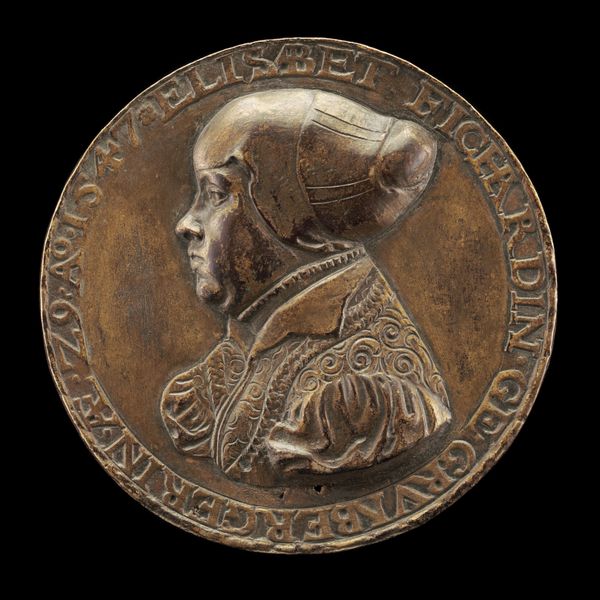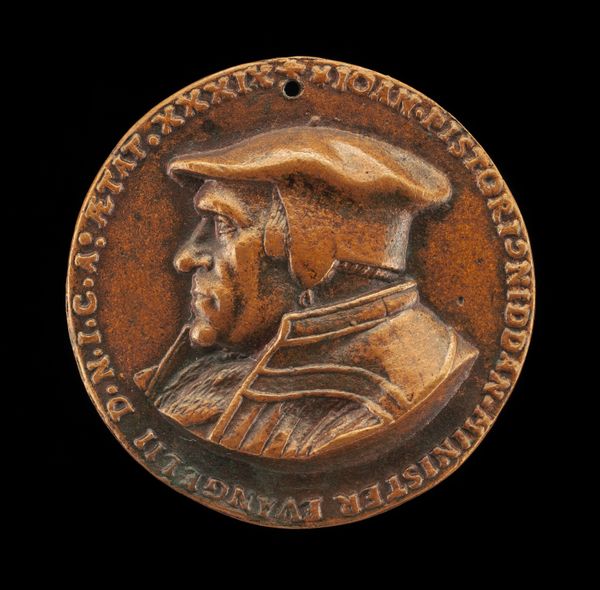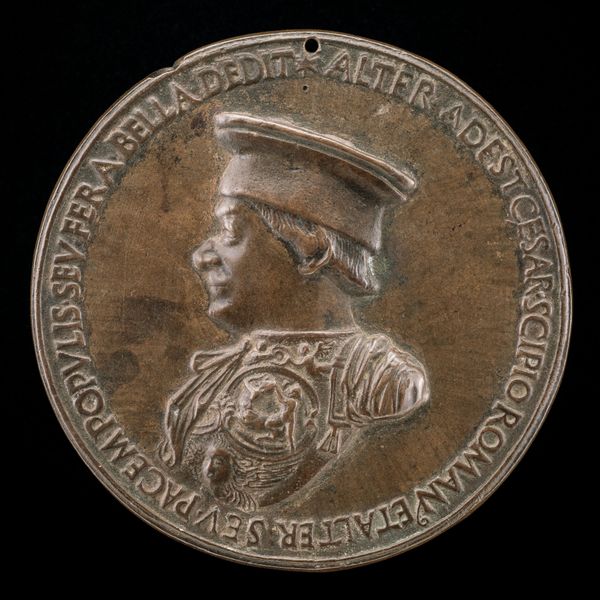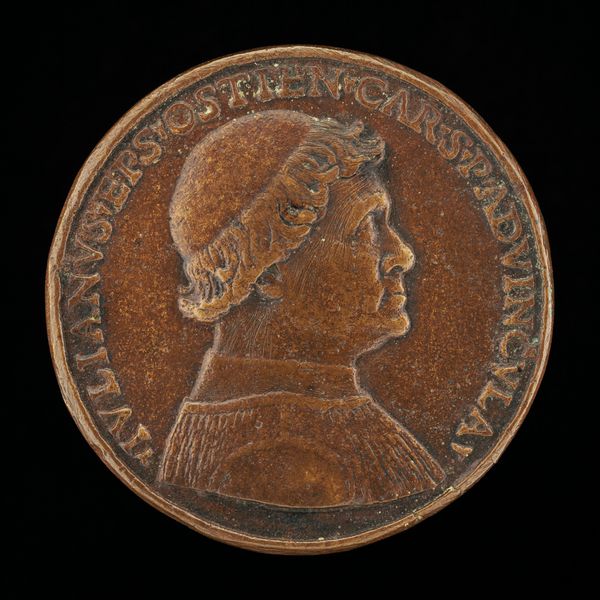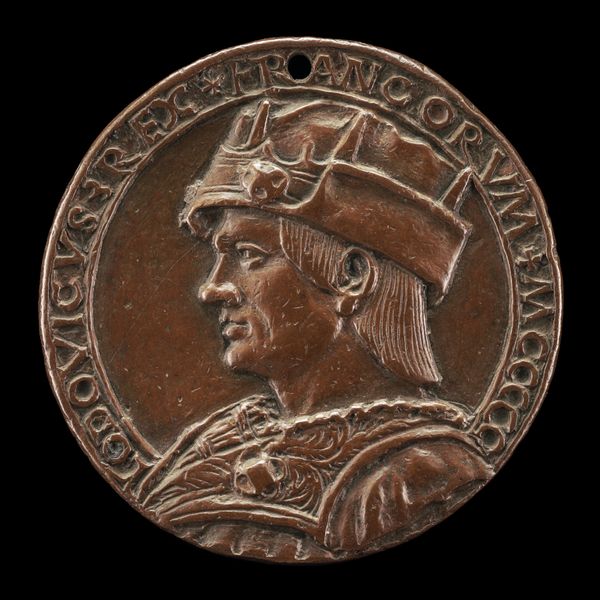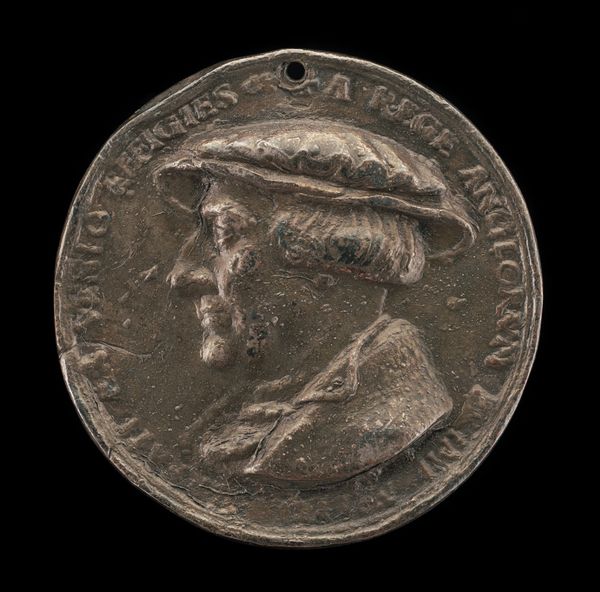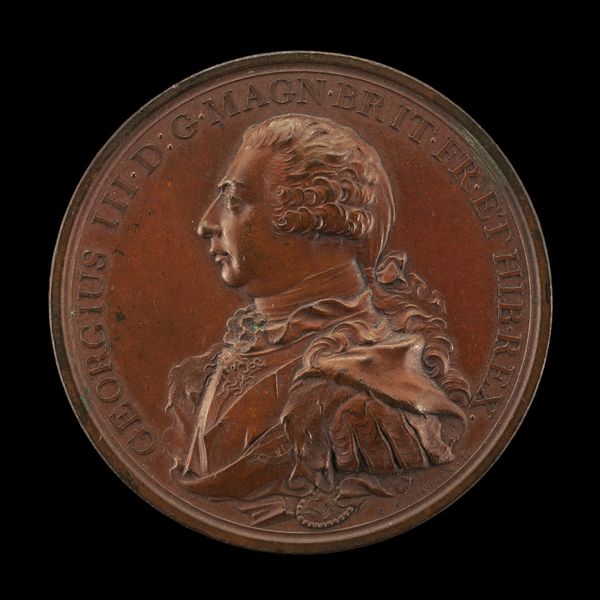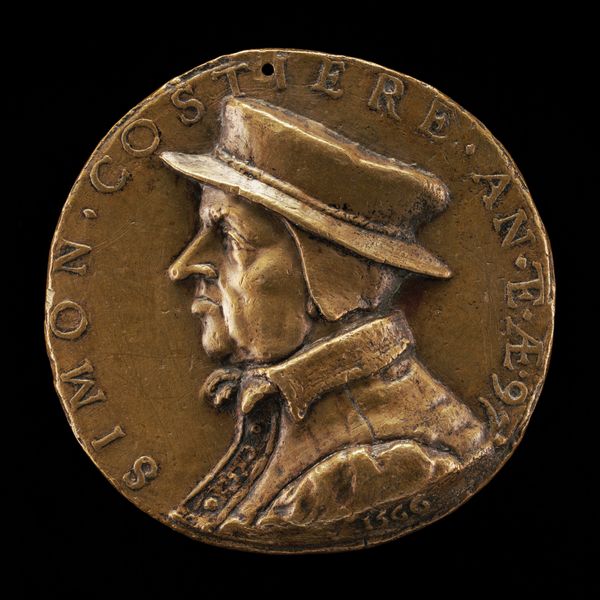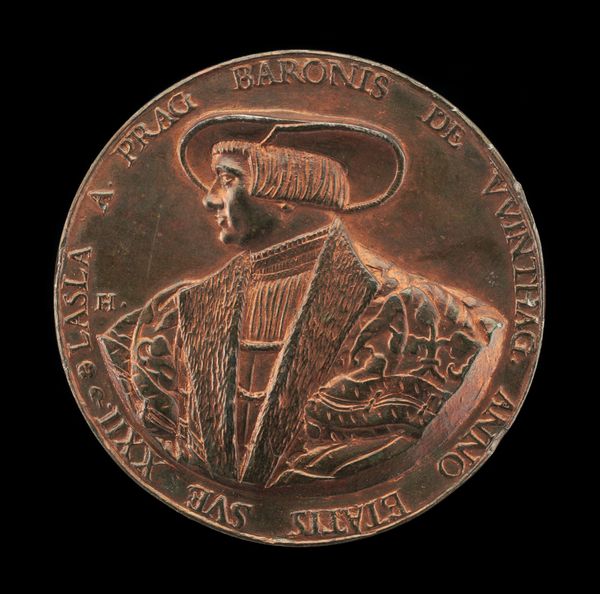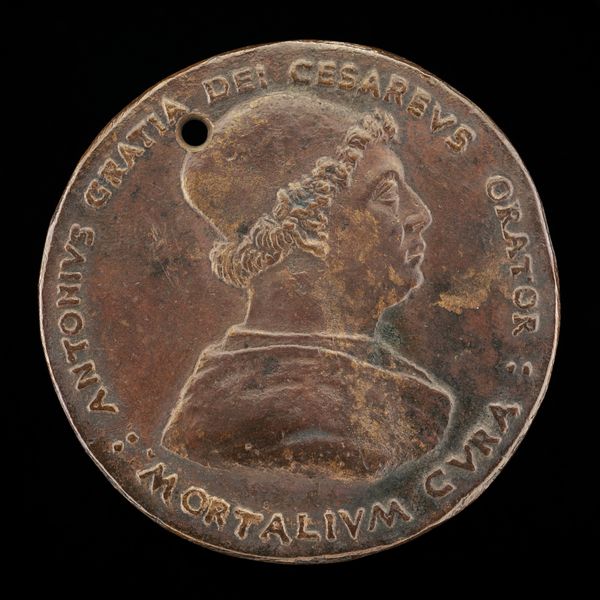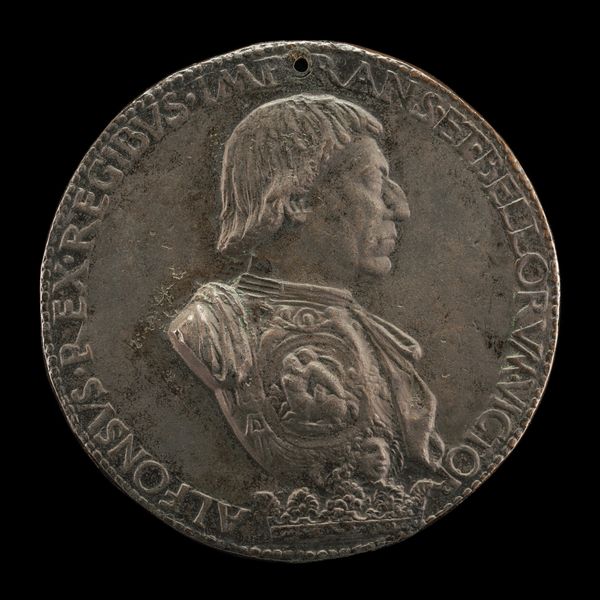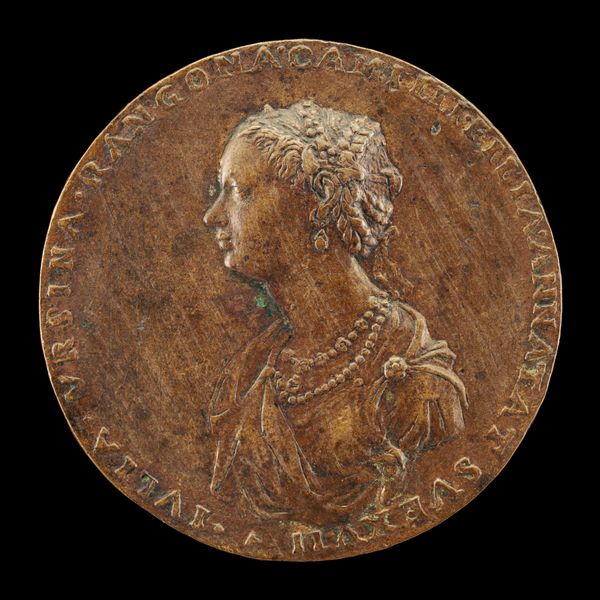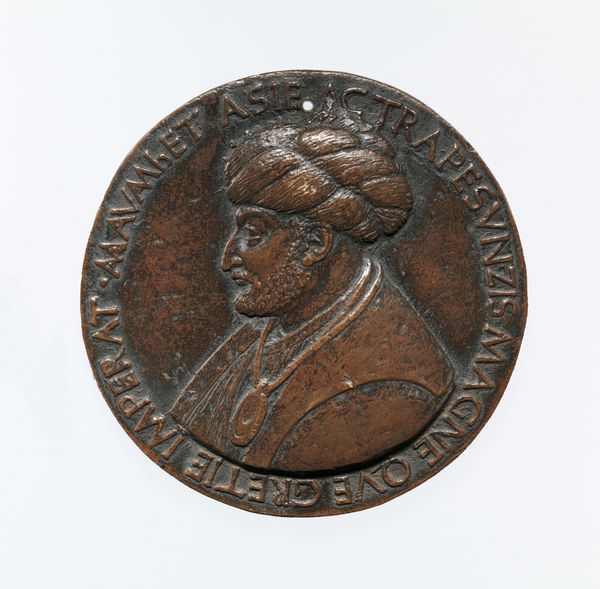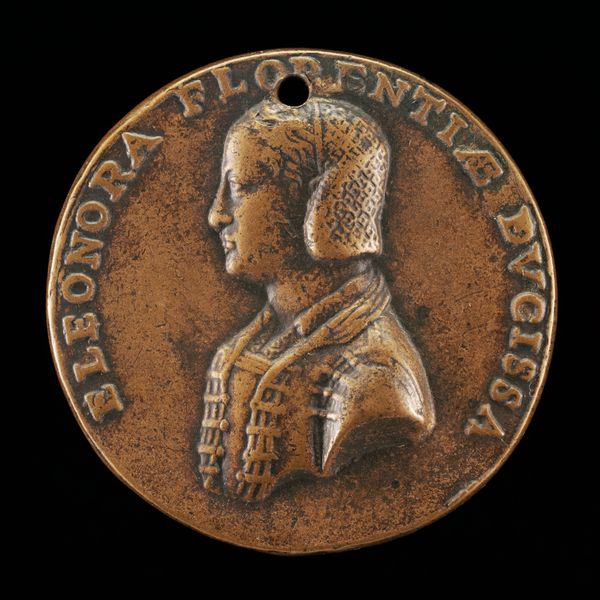![Sigismund Augustus, 1520-1572, Grand Duke of Lithuania 1522, King of Poland 1530 [obverse] by Giovanni Maria Mosca](/_next/image?url=https%3A%2F%2Fd2w8kbdekdi1gv.cloudfront.net%2FeyJidWNrZXQiOiAiYXJ0ZXJhLWltYWdlcy1idWNrZXQiLCAia2V5IjogImFydHdvcmtzLzU1ODQzNDFhLTk0NzMtNGY4Yy1hNWEyLWMyN2FlNGQ0MmU2ZC81NTg0MzQxYS05NDczLTRmOGMtYTVhMi1jMjdhZTRkNDJlNmRfZnVsbC5qcGciLCAiZWRpdHMiOiB7InJlc2l6ZSI6IHsid2lkdGgiOiAxOTIwLCAiaGVpZ2h0IjogMTkyMCwgImZpdCI6ICJpbnNpZGUifX19&w=3840&q=75)
Sigismund Augustus, 1520-1572, Grand Duke of Lithuania 1522, King of Poland 1530 [obverse] 1532
0:00
0:00
metal, bronze, sculpture
#
portrait
#
medal
#
3d sculpting
#
metal
#
sculpture
#
bronze
#
11_renaissance
#
sculpture
#
italian-renaissance
Dimensions: overall (diameter): 6.65 cm (2 5/8 in.) gross weight: 159.35 gr (0.351 lb.) axis: 12:00
Copyright: National Gallery of Art: CC0 1.0
This is a bronze portrait medal of Sigismund Augustus, King of Poland, made by Giovanni Maria Mosca, likely in the mid-16th century. The process of creating such a medal begins with the cutting of dies, or molds, into which molten bronze is poured, demanding expertise in metallurgy, sculpting, and design. Notice how the material qualities of bronze—its weight, sheen, and capacity to capture fine detail—contribute to the medal's sense of authority. The act of casting itself, a transformative process involving intense heat and skilled labor, elevates the status of the portrait it bears. Mosca was renowned for the sharp definition of his work in metal, evident in the crisp lettering around the perimeter and the well-defined profile of the king. The production of portrait medals was part of a broader system of courtly patronage, in which artists produced objects that asserted power. By appreciating the labor, skills, and social context embedded in this object, we can expand our understanding of the values it embodies.
Comments
No comments
Be the first to comment and join the conversation on the ultimate creative platform.
